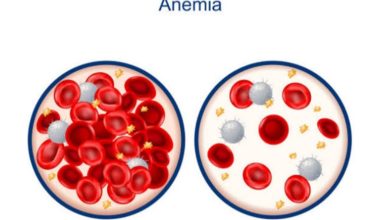Holistic Approach to Understanding, Preventing, and Managing Hepatitis Infections
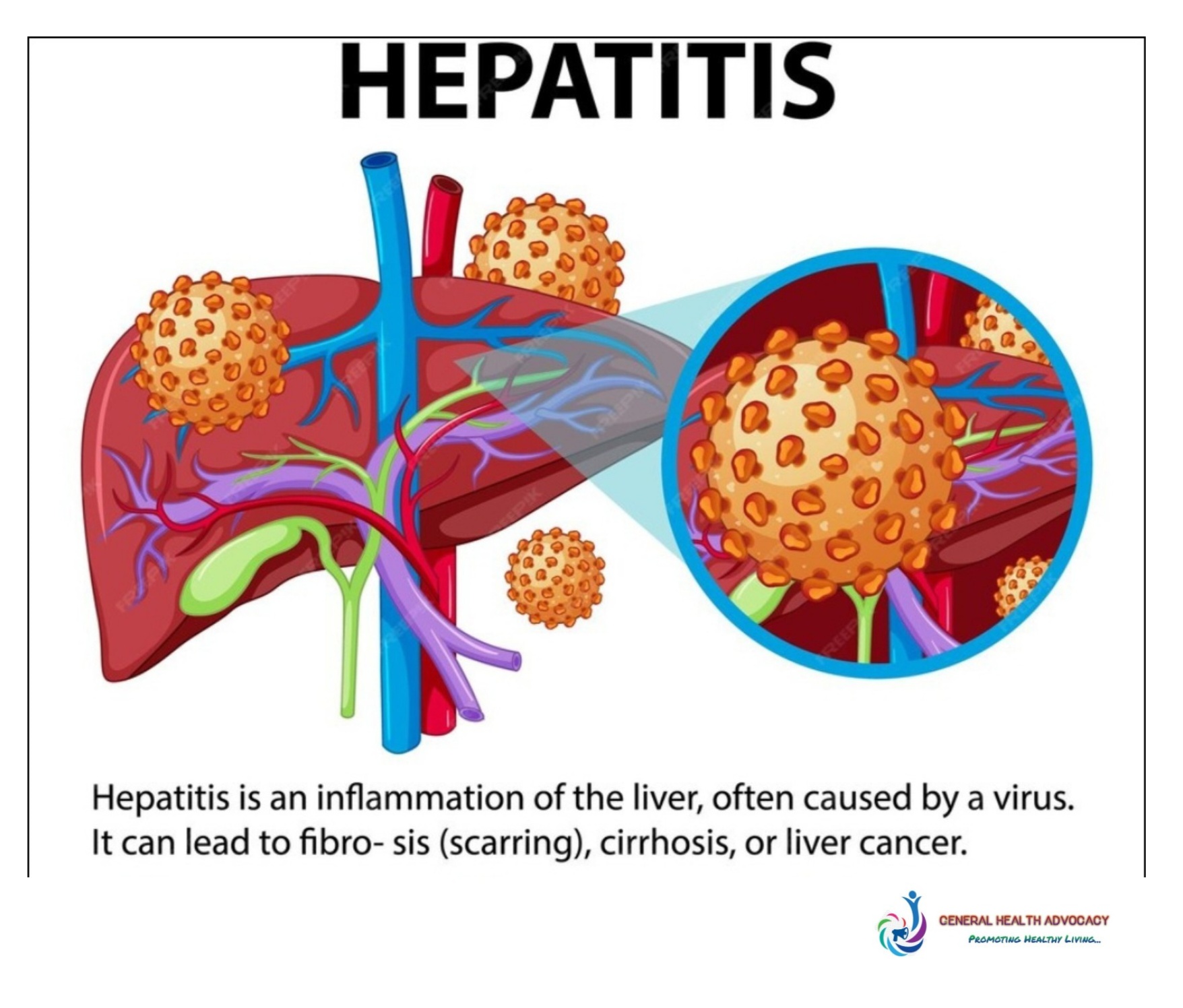
Hepatitis is a condition characterized by inflammation of the liver, often caused by viral infections, although it can also result from other factors such as alcohol consumption, autoimmune diseases, and certain medications. Viral hepatitis is of particular concern due to its widespread prevalence and potential for serious health consequences if left untreated.
There are several types of hepatitis viruses, including hepatitis A, B, C, D, and E, each with its own transmission routes, severity, and potential outcomes.
Transmission of Hepatitis: How Does it Spread?
– Hepatitis A and E: Typically spread through contaminated food or water, or close contact with an infected person.
– Hepatitis B, C, and D: Primarily transmitted through blood or bodily fluids, such as during unprotected sex, sharing needles, or from mother to child during childbirth.
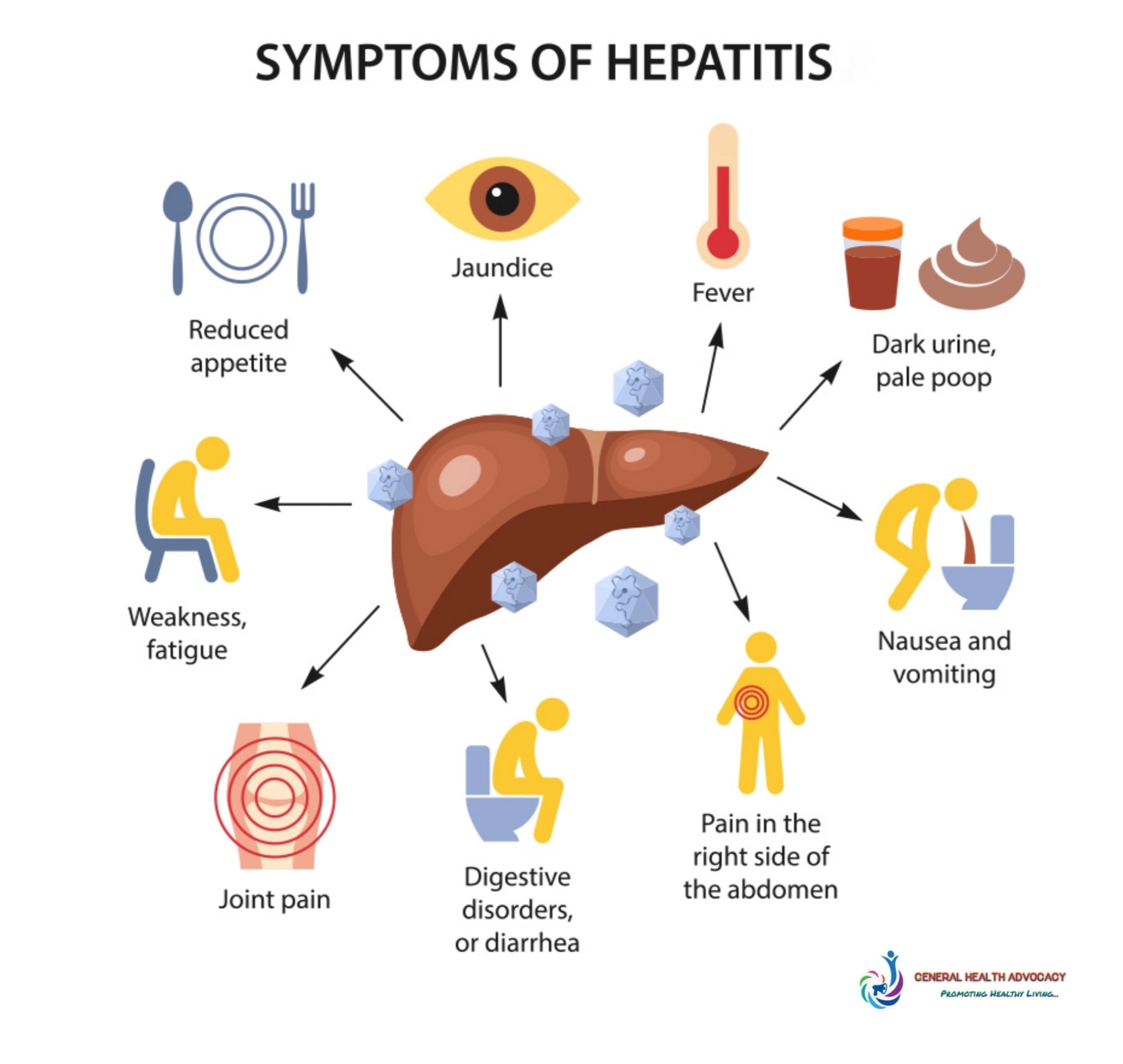
Types of Hepatitis
1. Hepatitis A (HAV): Typically transmitted through contaminated food or water or close contact with an infected person. Symptoms include fever, fatigue, nausea, abdominal pain, and jaundice. Hepatitis A infection is usually acute and doesn’t lead to chronic liver disease.
2. Hepatitis B (HBV): Transmitted through contact with infected blood, semen, or other bodily fluids. It can also be transmitted from an infected mother to her newborn during childbirth. Symptoms can range from mild illness to a chronic condition leading to liver cirrhosis or liver cancer.
3. Hepatitis C (HCV): Mainly spread through blood-to-blood contact, often through sharing needles or other drug-injection equipment. Many people with HCV don’t experience symptoms until liver damage has occurred. Chronic HCV infection can lead to serious liver complications, including cirrhosis and liver cancer.
4. Hepatitis D (HDV): This type only occurs in individuals who are already infected with hepatitis B. HDV is transmitted through contact with infected blood or bodily fluids and can accelerate the progression of liver disease.
5. Hepatitis E (HEV): Similar to HAV, HEV is typically spread through contaminated water in areas with poor sanitation. It usually causes acute infection and doesn’t lead to chronic liver disease except in rare cases, particularly in pregnant women.
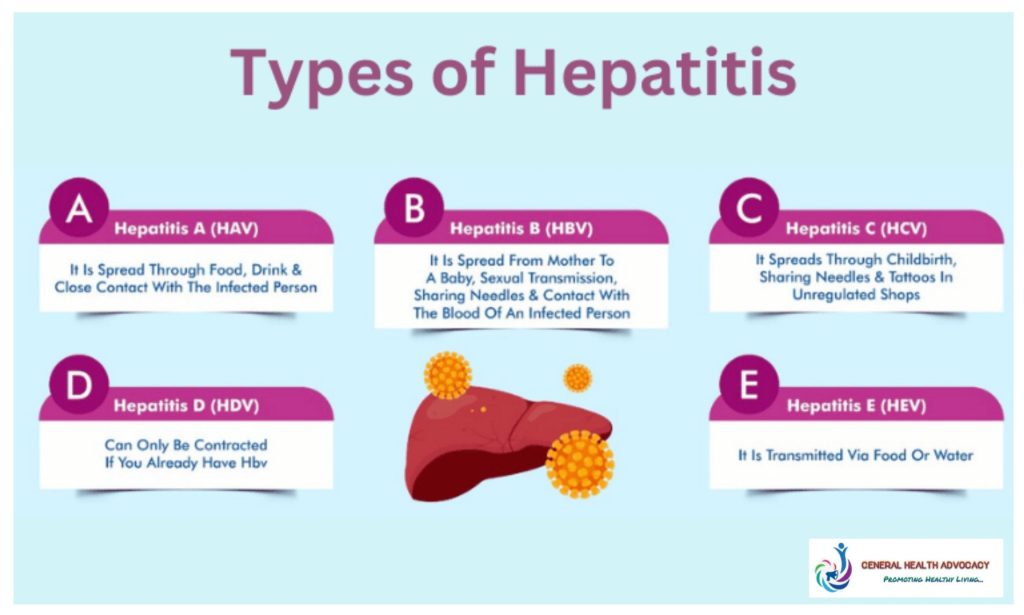
Causes of Hepatitis
- Viral Infections: Hepatitis viruses (A, B, C, D, and E) are the primary cause of viral hepatitis. Each type of virus has distinct modes of transmission and affects the liver differently.
- Contaminated Food and Water: Hepatitis A and E viruses can be transmitted through the ingestion of contaminated food or water, especially in areas with poor sanitation.
- Blood-to-Blood Contact: Hepatitis B, C, and D viruses are spread through contact with infected blood or bodily fluids, often due to sharing needles or receiving contaminated blood transfusions.
- Unsafe Sexual Practices: Hepatitis B and C can be transmitted through unprotected sex with an infected person, though the risk is higher for hepatitis B.
- Mother-to-Child Transmission: Hepatitis B can be passed from an infected mother to her newborn during childbirth.
Can Hepatitis be Cured?
The outcome of hepatitis infection depends on various factors, including the type of virus, the individual’s overall health, and the timing of diagnosis and treatment. While acute hepatitis can sometimes resolve on its own, chronic hepatitis can lead to serious complications, including liver damage, cirrhosis, and liver cancer.
– Hepatitis A and E: Typically acute and resolve on their own with supportive care.
– Hepatitis B, C, and D: Chronic infections are possible, but treatment options have improved significantly in recent years. Antiviral medications can help manage the virus, reduce liver inflammation, and prevent complications. In some cases, a liver transplant may be necessary for advanced liver disease.
Read Also
Hepatitis Vaccines: Prevention is Key
Vaccination is available for hepatitis A and B. The hepatitis A vaccine is recommended for travelers to areas with high infection rates and individuals at risk of exposure. The hepatitis B vaccine is part of routine childhood immunizations and is also recommended for adults at risk, such as healthcare workers and those with certain medical conditions.
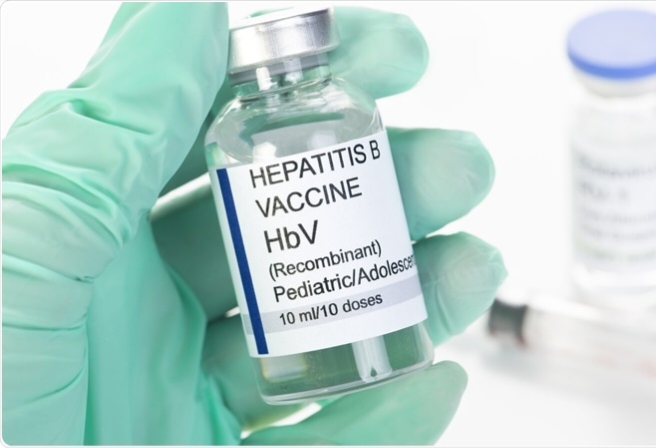
Prevention and Control of Hepatitis
1. Vaccination: Vaccines are available for hepatitis A and B. Routine vaccination, especially in childhood, can prevent infection and reduce the risk of transmission.
2. Practice Safe Hygiene: Wash hands thoroughly with soap and water after using the bathroom, changing diapers, and before preparing or consuming food. Avoid consuming untreated water and raw or undercooked shellfish, especially in regions with high rates of hepatitis.
3. Safe Sex Practices: Use condoms during sexual activity, especially with new or multiple partners, to reduce the risk of hepatitis B and C transmission.
4. Avoid Sharing Needles: If injecting drugs, use sterile needles and syringes, and never share injection equipment with others.
5. Screening and Testing: Regular screening for hepatitis B and C can help detect infections early and initiate appropriate treatment to prevent complications.
6. Hepatitis Awareness: Educate communities about the risks of hepatitis, modes of transmission, and preventive measures through awareness campaigns and educational programs.
7. Treatment and Care: Seek medical care if diagnosed with hepatitis to receive appropriate treatment and management, which may include antiviral medications, lifestyle changes, and regular monitoring.
By raising awareness, implementing preventive measures, and ensuring access to vaccination and healthcare services, the burden of hepatitis can be significantly reduced, leading to healthier communities worldwide.

Treatment of Hepatitis: Managing the Condition
Treatment for hepatitis focuses on reducing liver inflammation, slowing the progression of the disease, and preventing complications. This may include:
- Antiviral Medications: Depending on the type of hepatitis, antiviral drugs such as interferon and direct-acting antivirals (DAAs) may be prescribed to suppress viral replication and reduce liver inflammation.
- Liver Supportive Care: Maintaining a healthy lifestyle, including avoiding alcohol and certain medications that can worsen liver damage, is crucial. In some cases, nutritional supplements may be recommended to support liver function.
- Regular Monitoring: People with chronic hepatitis should undergo regular medical check-ups, including liver function tests and imaging studies, to monitor disease progression and detect any complications early.
Prevention: Your Best Defense
While treatment options for hepatitis have advanced, prevention remains the most effective strategy. Practicing good hygiene, getting vaccinated, using protection during sexual activity, and avoiding high-risk behaviors such as sharing needles can help reduce the risk of hepatitis infection.
If you suspect you may have been exposed to hepatitis or are experiencing symptoms such as jaundice, fatigue, nausea, or abdominal pain, it’s essential to seek medical attention promptly for testing and evaluation. Early detection and treatment can improve outcomes and reduce the risk of complications associated with hepatitis.
